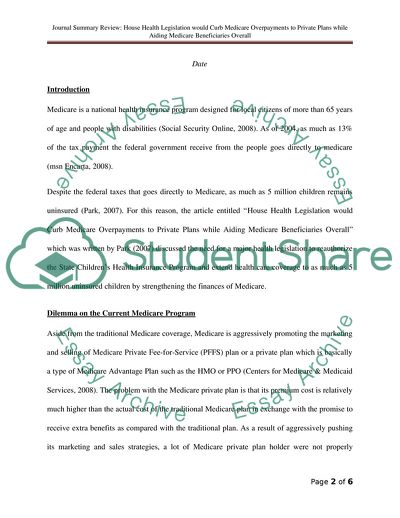Journal Summary Review:House Health Legislation would curb medicare Article. https://studentshare.org/medical-science/1716219-house-health-legislation
Journal Summary Review:House Health Legislation Would Curb Medicare Article. https://studentshare.org/medical-science/1716219-house-health-legislation.


